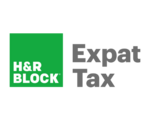Whichever type of saving plans you’re looking for, Hong Kong can provide a wealth of financial planners and advisors to assist you. Be aware, however, that Hong Kong is not as well regulated as other places, so you should proceed warily on your investments.
If you are looking for a financial planner, choose one that has offices overseas, so you can continue to use the company’s services when you’re leaving Hong Kong.
You might want to use an independent company or advisor who is not tied to a specific bank or savings company, and thus will objectively offer you the full range of savings products on the market. Most financial advisors work on commission, though you may encounter those who charge a fee for advice.
Generally, reputable advisors do not charge a fee for a first meeting.
There are several different bodies acting as regulators of the financial industry in Hong Kong, including the Securities and Futures Commission (SFC), the Insurance Authority, the MPF Authority and the Monetary Authority, which regulates the banks. The SFC regulates most financial planners in Hong Kong and has a list of approved advisors at their website: www.hksfc.org.hk .
Even though a company may be regulated, not all of the products it is selling may be authorized for sale. In Hong Kong, many of the unregulated funds are sold on a private placement basis. If you are unhappy about the financial planning advice you have received, put your complaint in writing to your advisor first. If they do not address the complaint, then file a complaint with the SFC.
Foreign currency investments in Hong Kong
If you plan to return to your home country at some point, most financial advisors recommend saving in the currency of your home country, especially if you plan to buy property back home. Hong Kong has a sophisticated financial market with a range of investment options for expats based here, so you should not have a problem finding an investment vehicle that fits you.
Expats should also check out interest rates on term deposits with their own banks for deposits in their home country’s currency, since the interest rates on term deposits of these currencies may be higher than those offered by local banks.
Optimizing your taxes in Hong Kong
If you are employed by a company, you should start your financial planning before you even arrive in Hong Kong. Take tax advice to ensure you maximize the tax advantages open to you in Hong Kong. For example: if your employer pays your rent, holiday allowance and children’s education fees rather than including them in your salary, you can avoid these components being taxed at the standard salary tax rate.
Offshore accounts for expats in Hong Kong
Many expats set up offshore accounts in tax havens such as the Isle of Man, Jersey and Guernsey, which allow easy access to their money and the option to choose the currency of their investments.


